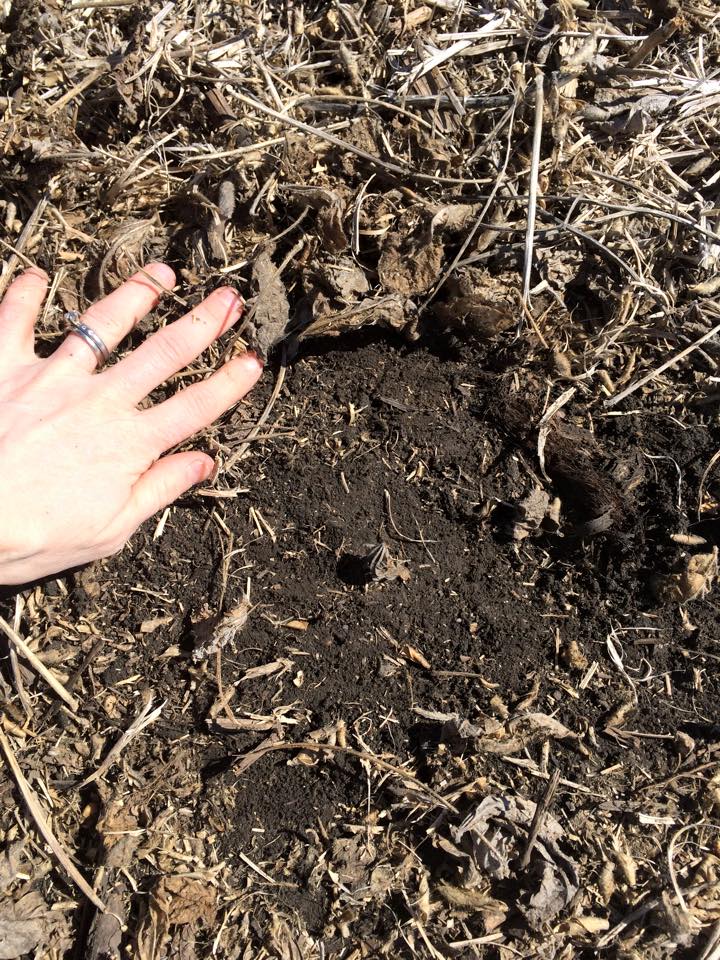
Sustainable Since 1866
As we approach Earth Day on April 22, more than one billion people will participate in this historic event, making it the largest civic observance in the world. It’s important to remember why we celebrate this day, and kicking off our “Sustainable Since” spotlights is Nancy Kavazanjian, Wisconsin farmer, United Soybean Board (USB) director, and U.S. Farmers and Ranchers Alliance Chairwoman, who’s proud to commemorate former Wisconsin Senator Gaylord Nelson who founded Earth Day in 1970 as a “national day for the environment”. This special day spurred the start of the modern environmental movement.
Growing up in suburban New York, Nancy always dreamed of being a farmer, and in 1980 she married Charles Hammer, a fourth-generation Wisconsin farmer. Charles’ great grandparents Joseph and Francisca Hammer immigrated from Germany in 1866 and bought 173 acres in Beaver Dam, Wis. raising dairy cows and chickens. Today, Hammer and Kavazanjian Farms has evolved to grow more than 2,000 acres of corn and soybeans and celebrates its sesquicentennial (150th anniversary) in 2016.
Being sustainable and preserving water, soil, air and habitat has always been of utmost importance to farmers and ranchers. In fact, in 1948 Nancy’s father-in-law Paul Hammer was awarded for Outstanding Agricultural Performance with a corn yield of 104.5 bushels. Last year in 2015, Nancy’s farm was awarded from the Wisconsin Corn Growers for 281.2 bushels, which is nearly triple the amount from the prior generation. Today’s farmers are using less land to grow more food and employing technology that produces higher yields while conserving water, nutrients and energy.
This year to celebrate Earth Day, Nancy will be planting sweet corn to share with their local food pantries, church youth group, friends and neighbors, weather permitting. Read more about how Hammer and Kavazanjian Farms is committed to continuous improvement in order to sustain their land and natural resources to keep the environment healthy and vibrant.
Why is soil important to you?
NK: The motto for our farm since 1980 has been “Our Soil. Our Strength.” In the last few years, soil health has come to the forefront of agriculture. We’ve always been committed to improving our soil health. One of the ways we do that is by adding organic matter (decomposable plant remains that aren’t used, i.e. stalks, leaves) to replenish the land and enrich our soil.
How is your farm sustainable?
NK: In the mid-1980s we started no-till farming and planting soybeans into corn stubble without plowing it to protect our soil from water runoff and wind erosion. We have a no-till field that hasn’t seen a plow in nearly 30 years. Back when we stared no-till farming, we started seeing thousands of earthworms, which is a sign of excellent soil health.
What does it mean to be sustainable?
NK: Being sustainable means continuous improvement. Every couple years we soil test our fields to measure the amount of plant matter and manure, which enriches our soil health and contributes to a stronger, healthier crop. We don’t just throw seeds in the ground, pray for rain and hope it’ll grow. Farmers are plant scientists so we have to understand everything that’s going on in our soil and our environment that makes a plant grow. We have to be very conscious and fertilize it, water it and make sure that weeds don’t grow.
Why is sustainable farming important to consumers?
NK: It’s important to remember that farmers and ranchers are consumers too, and we care about a safe and sustainable food supply. We are outdoor people, and we make our livelihood off the land. We want our nutrients to stay in the ground and not wash away with water and blow away in the wind. We don’t want them in the lakes, streams and ditches because we’re losing nutrients and soil, and also because we’re consumers too and enjoy clean waterways.
Why are you thankful for consumers?
NK: Without customers we wouldn’t have a business, and farming is as much a business as it is a lifestyle. It’s important that we understand what our customers want so that we can provide it. We are business-minded when we farm, and if a customer tells us they want something, we’re more than happy to provide that for them and satisfy their demands.
This article was originally published at www.fooddialogues.com.
